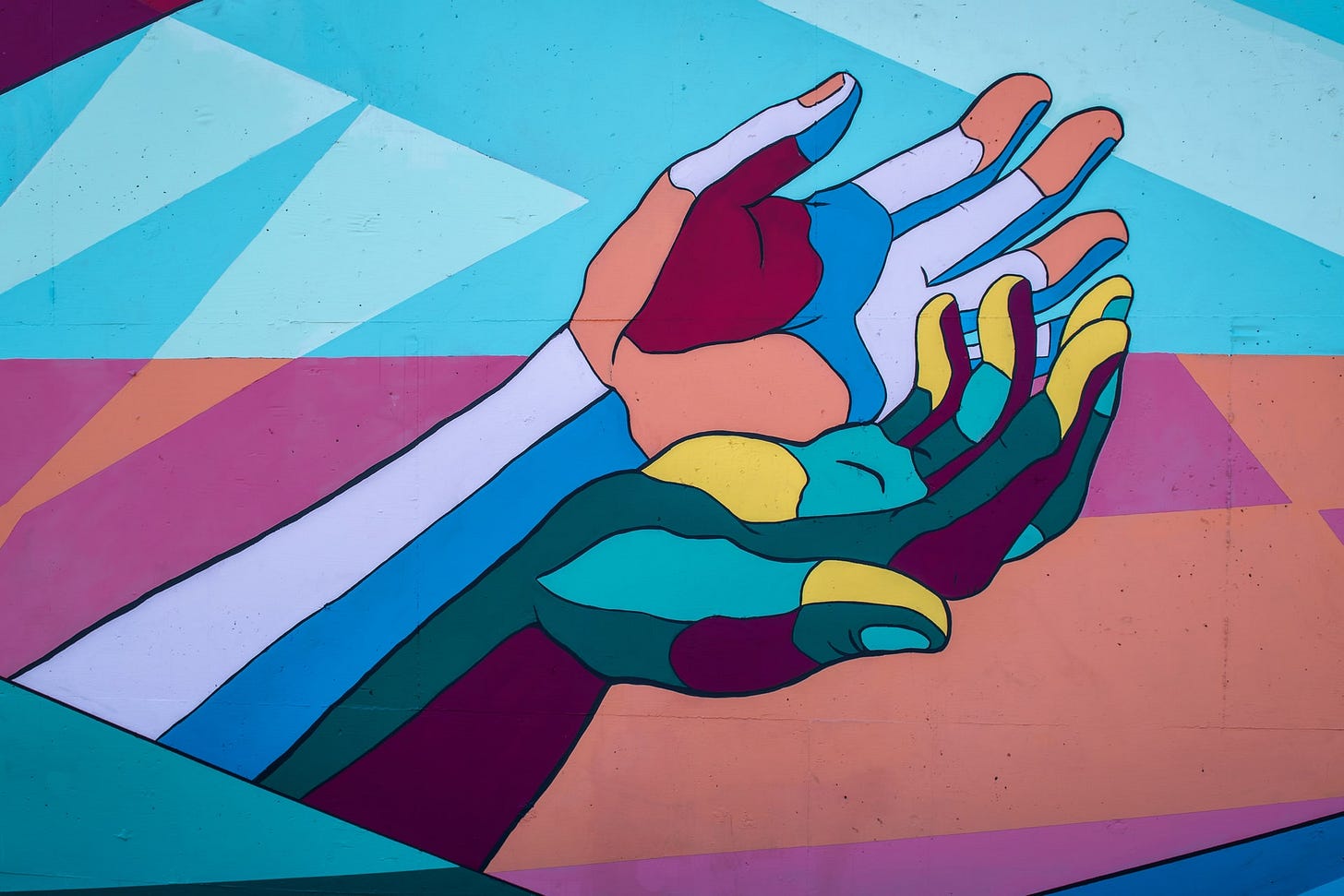Is everyone feeling as crappy as I’m feeling right now?
The short answer is yes. Here's some of the research behind the *why*, and some small mental health techniques you can incorporate going into 2022.
Welcome to the 61st issue of The Supplement, a newsletter that fills in the gaps of your other news intake. This is Sam, one-third of The Supplement team!
Each week, we pick a question submitted by you, our readers. If you’d like to submit a question for a future week, then email us at thesupplementnewsletter@gmail.com or reach out to us on Twitter or Instagram.
Let’s try something new: how about you send us to a friend who might enjoy this newsletter?
This week, we’re tackling this question: Is everyone feeling as crappy as I’m feeling right now?
TL;DR: Yep.
You probably don’t need me to tell you that as the pandemic continues, so does the collective mental health crisis a lot of us are going through. I like to play a little game with myself lately where I decide which “-essed” I am that day: depressed, stressed or pressed? Sometimes, it’s all three — and based on my TikTok feed, I’m not the only one.
Interestingly, the pandemic presents a different kind of mental health challenge than occurrences like tsunamis or terrorist attacks, because it’s more longterm. And as we enter the *checks watch* third calendar year dealing with COVID-19, people are feeling worn down in ways many of us haven’t felt before.
“With population-wide trauma, a war or a terrorist attack, we heal socially,” Dr. Brandon Kohrt, professor of psychiatry at George Washington University, explained to The Guardian for this piece about what we can learn about recovery from other disasters. “Being together when the awful thing happens and then healing together is really crucial.”
But with COVID’s isolation, we can’t find that same collective healing, and prolonged exposure to threatening and scary environments can even lower our empathy for others.
Turns out there’s a name for this long-haul feeling that so many of us are experiencing, according to scientific research recapped in the New York Times: languishing. It’s “a sense of stagnation and emptiness. It feels as if you’re muddling through your days, looking at your life through a foggy windshield. … the void between depression and flourishing — the absence of well-being.” It’s why you might be skipping those morning runs that usually get your endorphins running, staying up late to watch a comfort movie, or finding it more difficult to get through work.

So what can we do about it? For one, giving your feelings a name is a good place to start (whether that’s getting a formal diagnosis or just taking time to think about how you’re doing). Find meaning in your everyday activities, try meditating or take a formal Sad Day, a good round-up from the Times advises. Early intervention is critical for a population’s overall mental health, and focusing on our social connections helps, according to research conducted on firefighters and other first responders. Companies are giving their employees more no-questions-asked days off — those employees just need to take them.
And on the bright side, experts are hopeful that the pandemic has completely shifted our understanding of mental health, and that this increased awareness will last longer than COVID. Finally, if you’re looking for a little camaraderie, this recent first-person essay in The Globe and Mail — titled “Are people more irritating, or am I more irritable?” — might resonate.
Though I’ve tried my best to throw a few manageable tidbits and tips your way, I can’t end this newsletter without noting that we can't self-care our way out of structural issues or blame ourselves for institutional failures. The pandemic exposed and exacerbated the disparities in mental health care that exist in many countries, and we need to address them to truly put ourselves in a better place.
P.S. Here’s a round-up of mental health resources across Canada. Also check out the Affordable Therapy Network, a directory of therapists offering low-cost and sliding scale rates.
Here’s someone to follow:
Education has always been an important beat — but during the pandemic, education reporters have proved to be downright critical. Caroline Alphonso covers the subject for The Globe and Mail, and she’s definitely worth your follow.
Here’s a story to check out:
Over on our Instagram last week, we asked our followers what they were hoping to read more of in 2022 — and an overwhelming percentage mentioned wanting to stay better informed on stories that have gone underreported or flown under the radar.
So this week, I urge you to read the latest dispatch from The Rover’s Christopher Curtis, who spotlighted the “filthy and inhumane” conditions in Quebec’s largest prison. “I can almost understand the clumsy response to COVID when it first arrived, we were all learning on the fly,” said Alexandra Paquette, a lawyer with clients inside the prison. “But when you have clients who today, two years into the pandemic, are being quarantined for over three weeks without clean sheets, clean clothes or a shower, there’s no excuse for that.”





